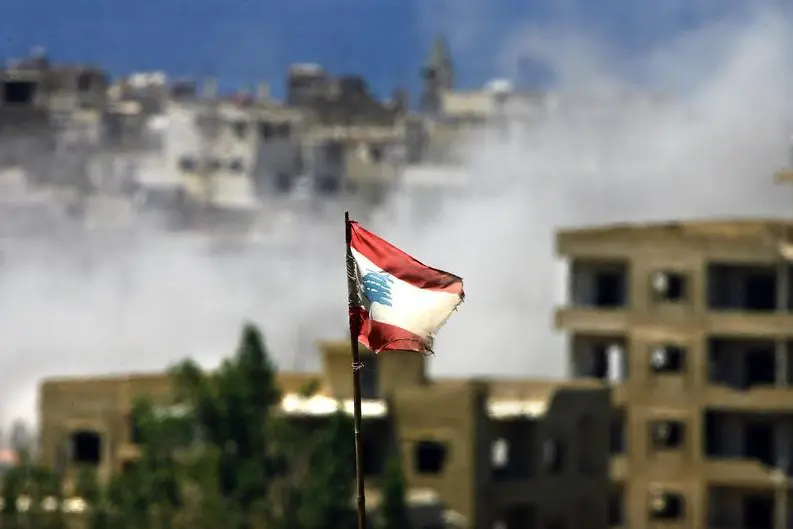PHOTO
Nov. 22 is not a date that conjures up much outside of Lebanon. But for the people of Lebanon, it is our Independence Day. On this day in 1943, Lebanon celebrated the end of the French Mandate and the beginning of a new era for the country. For the first time in centuries, the people of Lebanon had control over their own government and lives.
That celebration is tinged with more than a little tragedy this year. The destructive explosion that rocked Beirut on Aug. 4 underscored years of government mismanagement, corruption and sectarian strife that have led Lebanon to the precipice of chaos.
Voters have lost confidence in the political elite, and hold them accountable for Lebanon’s worsening political and economic crisis. Over the last year, interim prime ministers have come and gone, having been asked to form a government. But the result was the same — all have been unable or even unwilling to overcome the vested interests that have governed Lebanon for the last 30 years.
There is a clear reason for this failure. Many of the established parties have refused to budge from their demand to control certain ministries. By holding the country to ransom, they are blocking any chance for progress.
Obstruction by Hezbollah and its allies has been recognized by the US Treasury. In the last few months, a number of individuals accused of corruption and partisan interests have been sanctioned, including most recently Gebran Bassil, the son-in-law of the current president. This is a major step forward and shows that the international community is not blind to personal and political corruption.
We must learn from these failures. To save Lebanon, we must create a new reality and move away from the old system, the system that says Lebanon must be controlled by warlords, dynasties and armed militias; that says the tools of government must work for the corrupt, not the people; that says religion must be at the heart of how the country works.
These are the old ways, and they have failed us.
I believe that a radical approach must be taken to overcome the colossal challenges that face Lebanon. This path is extreme — in its refusal to accept the current corrupt warlords as master of Lebanon; in its belief that the government must work for the people, not the elite; and in its understanding that talent and experience, not entrenched factions, must dictate our country’s future — but it is necessary to make a break from our failed past.
At the heart of this break is a simple change. We must listen to the people in the street.
The protests over the last year have been vocal in their demands, and these demands must be met. They are not outrageous; they are demands for basic democratic rights and values. Lebanon needs a true leader installed as prime minister to prioritize the interests of ordinary families. We are tired of Lebanese politicians bowing to outside regional influences and serving themselves instead of their people.
I believe that the next prime minister must be someone dependable who can work autonomously for all of Lebanon, regardless of background or religion, in the way that my father Rafic Hariri did. His leadership and fairness in office meant that all the Lebanese people were able to prosper, regardless of religion, and benefit from the stability and investment that he brought to Lebanon.
This prime minister must work with a small Cabinet of skilled, competent experts, in position on account of their achievements and experience, to secure immediate changes to the way the government works for the people. Simple things — sorting out garbage collection, policing the streets and tackling the rising cost of living — must begin immediately. In the short term, the focus must be on the economy: A deal with the International Monetary Fund (IMF), a major anti-corruption push, and the delivery of international aid to rebuild Beirut must be priorities.
My father’s premiership focused heavily on education, building for the long term. This was admirable, but the next government must be more immediate. Jobs and opportunities are vital to support Lebanon’s immediate growth and to get the country back on its feet. All of us must commit to contributing what we can to Lebanon’s regeneration, whether through new initiatives or international assistance. A deal with the IMF will be the first step toward restoring normality, but we must up our economic resilience to overcome whatever hurdles lie in store for us in the future.
By taking a new approach, we can change Lebanon. We will need international support — we cannot make it on our own. But our allies in the region, and in the US and France, must accept that this new path is the only route out of the mire. Sanctions are a strong statement, but we need more help. Without it, Lebanon will continue to flounder under the ravages of the current corrupt elite, and we risk becoming an outpost of instability in an already volatile region.
Now is the time for all Lebanese to take the radical approach of supporting systemic change. With this leap of faith, we can take control of our future.
- Bahaa Hariri is the eldest son of former Lebanese Prime Minister Rafic Hariri.
Copyright: Arab News © 2020 All rights reserved. Provided by SyndiGate Media Inc. (Syndigate.info).





















